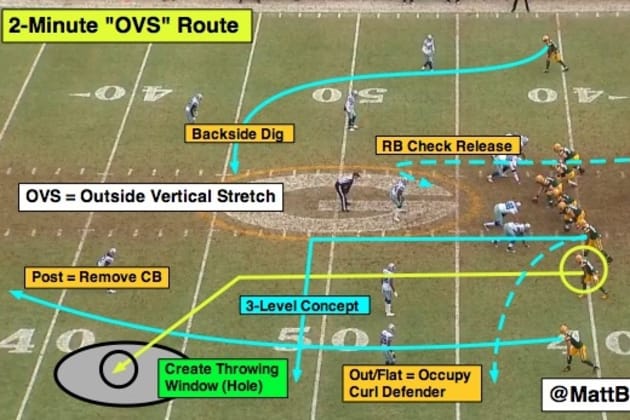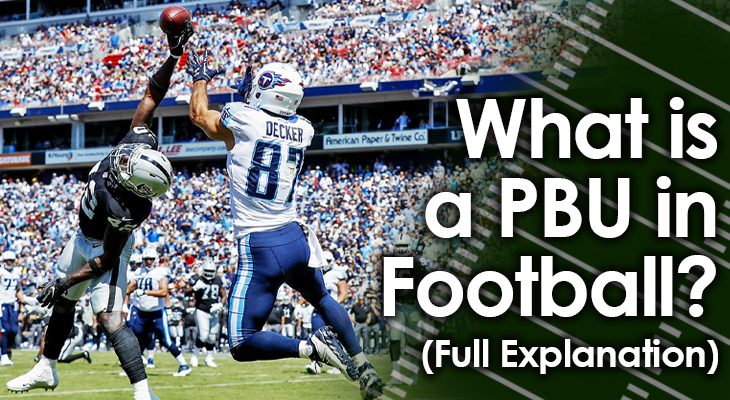Football is a complex sport with its own language of terms and acronyms. One such term that may leave some fans scratching their heads is ‘PBU.’ So, what is a PBU in football? If you’ve ever wondered about this defensive statistic, you’re in the right place. A PBU stands for Pass Break Up, and it occurs when a defensive player successfully prevents a completed pass by disrupting the intended target. This crucial defensive play can change the course of a game and is a key metric for evaluating a defender’s performance. In this ultimate guide, we will delve deeper into the significance of PBUs in football and how they impact the game.
Introduction to PBUs in Football
A Pass Break-Up (PBU) in football refers to a defensive play where a defender prevents a completed pass by disrupting the receiver’s attempt to catch the ball. PBUs are crucial in stopping the opposing team’s offensive drives and potentially changing the game’s momentum. This stat is particularly important for cornerbacks, safeties, and linebackers who excel at defending against aerial attacks.
Why PBUs Matter
PBUs showcase a defender’s ability to read the game, anticipate plays, and execute timely interventions. The stat demonstrates not only the player’s skill in coverage but also their agility, speed, and timing in making crucial defensive stops.
Having a high number of PBUs signifies a defender’s effectiveness in disrupting the opponent’s passing game, leading to incomplete passes, turnovers, and ultimately, defensive success.
Techniques for Achieving PBUs
To achieve PBUs, defenders need to master various techniques, including:
- Positioning: Being in the right place at the right time to break up the pass.
- Timing: Anticipating the receiver’s movements and making a play on the ball at the perfect moment.
- Physicality: Using physical contact within the rules to disrupt the receiver without drawing penalties.

Importance of PBUs in Football
Pass break-ups (PBUs) play a crucial role in determining the outcome of football games. A PBU occurs when a defender interrupts a pass attempt by the opposing team, preventing a completion. This defensive maneuver can change the momentum of a game and greatly impact the final score.
Enhances Defensive Strategy
PBUs are vital for a strong defensive strategy as they help in disrupting the opposing team’s passing game. By depriving the offense of successful passes, defenders can force turnovers and create scoring opportunities for their own team.
Additionally, PBUs contribute to improving a team’s overall defensive statistics, such as completion percentage allowed and opponent passer rating.
Boosts Team Morale
Successfully executing a PBU can energize the entire team and the fans in the stadium. It showcases the defender’s skill and determination, boosting team morale and confidence. This positive energy can lead to better performance in other areas of the game, including tackling and interceptions.
How to Achieve a PBU in Football
Pass Breakup (PBU) in football is a crucial defensive stat that showcases a defender’s ability to prevent completed passes. To achieve a PBU, players need to master certain techniques and strategies while on the field.
Positioning is Key
Proper positioning is essential for defenders looking to make a PBU. By being in the right place at the right time, players can effectively disrupt the pass and make a play on the ball.
Angle your body towards the receiver and keep your eyes on the ball. Focus and anticipation are crucial in successfully breaking up a pass.
Timing Your Jump
Timing is everything when it comes to breaking up a pass. Wait for the right moment to jump and extend your arms to reach for the ball without interfering with the receiver.
- Track the receiver’s movements
- Leap when the ball is in the air
- Extend your arms to disrupt the pass
Notable Players Known for PBUs
Pass breakups (PBUs) in football are crucial defensive plays that disrupt the opponent’s passing game. Several elite players are known for their exceptional ability to break up passes effectively. Here are some of the notable players known for their PBUs in the latest football season:
Jalen Ramsey
Jalen Ramsey, a cornerback for the Los Angeles Rams, is recognized for his exceptional skills in breaking up passes. His agility, speed, and anticipation on the field make him a formidable force against opposing quarterbacks.
Xavien Howard
Xavien Howard of the Miami Dolphins is another standout player known for his impressive PBUs. Howard’s ability to read plays, anticipate routes, and make timely breaks on the ball has solidified his reputation as one of the top PBU producers in the league.
Stephon Gilmore
Stephon Gilmore, a cornerback for the New England Patriots, is a consistent performer when it comes to disrupting passes. His technique, physicality, and football IQ enable him to consistently break up passes and make impactful plays for his team.
Common Misconceptions about PBUs
When it comes to understanding PBUs in football, there are several common misconceptions that often lead to confusion among fans and even some players. Let’s debunk some of the myths surrounding PBUs to gain a clearer understanding of this important defensive stat.
Myth 1: PBUs are the same as interceptions
One of the most prevalent misconceptions is equating PBUs with interceptions. While both are crucial defensive actions, they are distinct stats. A pass breakup (PBU) occurs when a defender prevents the intended receiver from catching the ball, whereas an interception involves the defender catching the ball themselves.
Myth 2: Only defensive backs can record PBUs
Another myth is that only defensive backs can accumulate PBUs. In reality, linebackers, safeties, and even defensive linemen can also register PBUs by disrupting passes. Understanding that PBUs are not limited to a specific position enhances the appreciation of defensive plays across the entire team.
Frequently Asked Questions
-
- What does PBU stand for in football?
- PBU stands for Pass Break-Up in football. It refers to a defensive play where a defender prevents a pass from being completed by disrupting the receiver’s attempt to catch the ball.
-
- How is a PBU different from an interception?
- A PBU and an interception are both defensive plays in football, but they have different outcomes. A PBU occurs when a defender prevents a pass from being caught by the receiver, whereas an interception happens when the defender catches the ball intended for the receiver.
-
- What are some techniques used to achieve a PBU?
- Defenders use various techniques to achieve a PBU, such as getting in the passing lane, timing their jump to disrupt the catch, using their hands to knock the ball away, and staying close to the receiver to limit their ability to make a catch.
-
- How important is a PBU in a football game?
- A PBU is crucial in a football game as it can help prevent the opposing team from scoring points or gaining momentum. It shows the defender’s ability to read the play and make a decisive stop, impacting the outcome of the game.
-
- Do PBU statistics matter for evaluating a defender’s performance?
- Yes, PBU statistics are essential for evaluating a defender’s performance in football. It demonstrates their ability to disrupt the passing game, contribute to the defensive effort, and make crucial plays when defending against the opposing team’s offense.
Final Thoughts on What is a PBU in Football
In conclusion, understanding what a PBU (Pass Break-Up) is in football is crucial for both players and fans. This defensive statistic represents a player’s ability to disrupt the opponent’s passing game, showcasing their skills in preventing completed passes. PBUs are not just about denying the completion but also about creating turnovers and shifting the momentum of the game. By recognizing the significance of PBUs, teams can improve their defensive strategies and overall performance on the field. So, next time you watch a football game, keep an eye out for those impressive PBUs and appreciate the defensive prowess of the players!





